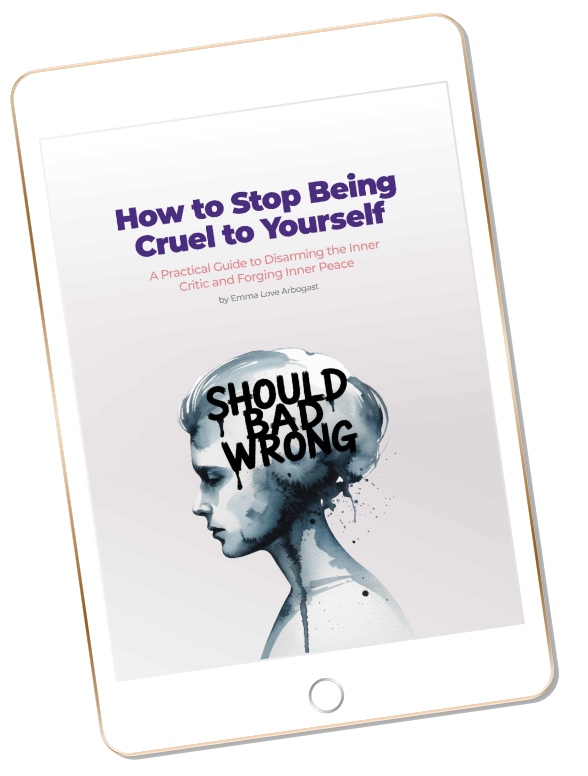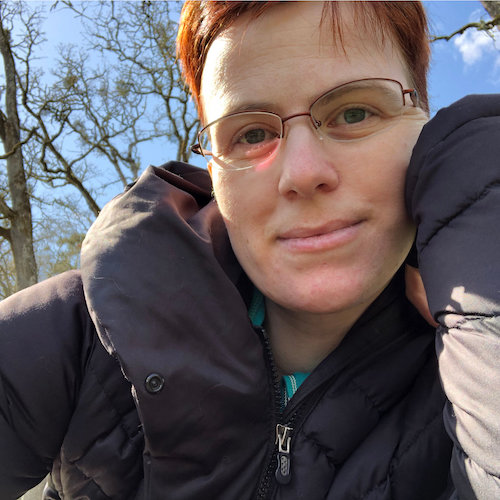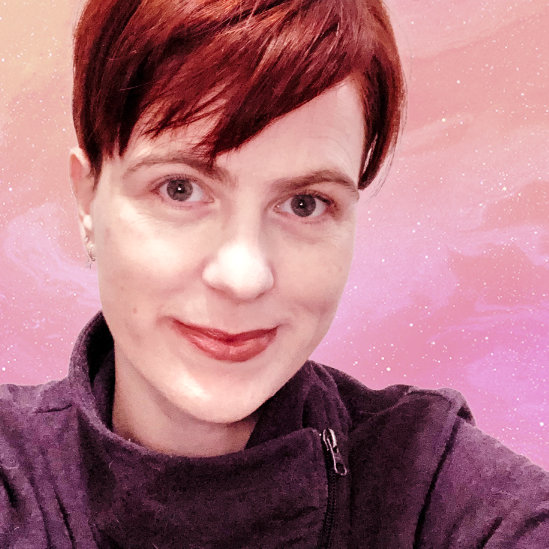Accepting Our Brokenness Helps Us Heal
One of the major tasks of healing is self-acceptance. While a lot can be gained by developing mindfulness and skillfulness, there is a fundamental peace and clarity that comes from accepting and meeting yourself where you are without judgment.
We all judge ourselves
We all struggle with feelings of inadequacy. We worry that we are not good enough, smart enough, strong enough, talented enough, pretty enough, or far enough along in our life. We wonder if we are too much: too emotional, too easily upset, too bossy, too critical, too gullible—take your pick.
These constant self-criticisms feel awful, so why do we keep doing them?
We reject ourselves to protect ourselves
As children, we got many messages about what was and wasn’t an acceptable part of ourselves. Because being rejected in our entirety would mean abandonment, we learned to hide the parts of ourselves that weren’t acceptable. We gradually become more and more divided into the parts of ourselves we know others will approve of and the parts we keep hidden, eventually even from ourselves. And what we can’t hide, we start to hate. We want desperately for these parts of ourselves to just go away so we can finally have the sense of belonging and acceptance we crave.
Ironically, it is by accepting ourselves that we can finally feel the peace we want.
The mind invents many hurdles and tasks for us to pass before we can be happy. But we can actually begin to be happy exactly where we are today, even knowing there is so much more for us to learn and grow into. We can be happy on our journey by accepting who we are today.
Self-improvement can sometimes mask self-rejection
In Towards a Psychology of Awakening, John Welwood explains a traditional Tibetan analogy that describes three levels of spiritual practice. They use the metaphor of a poisonous plant, which represents the basic tendencies that produce suffering: grasping, aggression, ignorance, jealousy, and pride.
The first level of dealing with these is to replace “poisonous” tendencies with virtuous tendencies. This is like uprooting the plant. But by doing this you lose the power invested in these mental constructs. Metaphorically, you lose your connection with the earth. You are not grounded and at peace—you are striving to be good.
The second level is to develop an antidote. In Buddhism for instance, cultivating emptiness does this. However, this “may leave us with a subtle preference for emptiness over form, which can also leave us inwardly divided.” This is a more subtle form of self-rejection, but it has the same effects: you may appear to be at peace, but you are working hard to maintain it.
The third level is to develop immunity by eating bits of the plant. Meditation and mindfulness accomplish this by encouraging you to watch the mind as it plays its tricks. By experiencing upsets from this witness state you develop an awareness that your thoughts are self-created. This takes the power out of the poison.
I would add a fourth level—where you see that the plant is not actually poisonous. It’s sick, or malnourished, or has grown crooked. Our patterns are not wrong; they are adaptations to situations that hurt or fail to nourish us. When we can see them with compassion and perspective, we can learn to give ourselves the nourishment and care we need to grow into healthy, flourishing adults.
Acceptance Is A Prerequisite to Transformation
By seeing yourself with compassion, you take the power out of your patterns and unlock the energy and aliveness that are wrapped up in them. This transforms you internally and you feel at peace and whole, without having to try to be good.
Start where you are. It is enough.

Free Ebook – How to Stop Being Cruel to Yourself
Permanently stop self-criticism, self-doubt, and comparing yourself to others.

Hi there! I’m Emma and I write about self-liberation. My writing is meant to share my process & inspire your own. If you want more frequent/current writing, visit my Substack Sparkly Dark.
If my writing has helped you, you can leave a tip at buymeacoffee.com, leave a comment below, learn more about me, or follow me on Instagram.
Thanks so much for reading! ~Emma


hi emma
i am really enjoying your website and your warm and compassionate tone. Am also a fan of John Welwood and his lovely book; the chapter on developing presence has been super helpful in enabling me to face my emotional states
the journey of healing can at times feel frightening, wearying and isolating, alongside moments of deep joy and connection to as the heart opens ever more deeply
blessings to you and thankyou for the support
jennifer
Hi Jennifer, thanks for visiting and I’m glad you liked the article. Thanks for saying hello and I wish you the best in your journey. 🙂